Costa Rica is arguably the birthplace of ecotourism in Central America, if not all of Latin America. It’s blessed with stunning natural beauty and an incredible array of wildlife and ecosystems. It’s also known for its eco-conscious (some call them ‘green’) hotels, as well as what’s become known as ecolodges.
Eco-friendly hotels in Costa Rica are an integral part of the sustainable tourism efforts. These accommodations are a model for providing employment to the local community and promoting environmentally sound practices: recycling, waste and water management, solar energy etc. The government actively encourages hotel owners to conserve energy through passive design and use of eco-friendly materials. Some hotels have voluntary conservation and social programs that go way beyond the basic expectations. Hospitality, therefore, contributes directly to the conservation of vital fragile habitats in this ecologically diverse country.
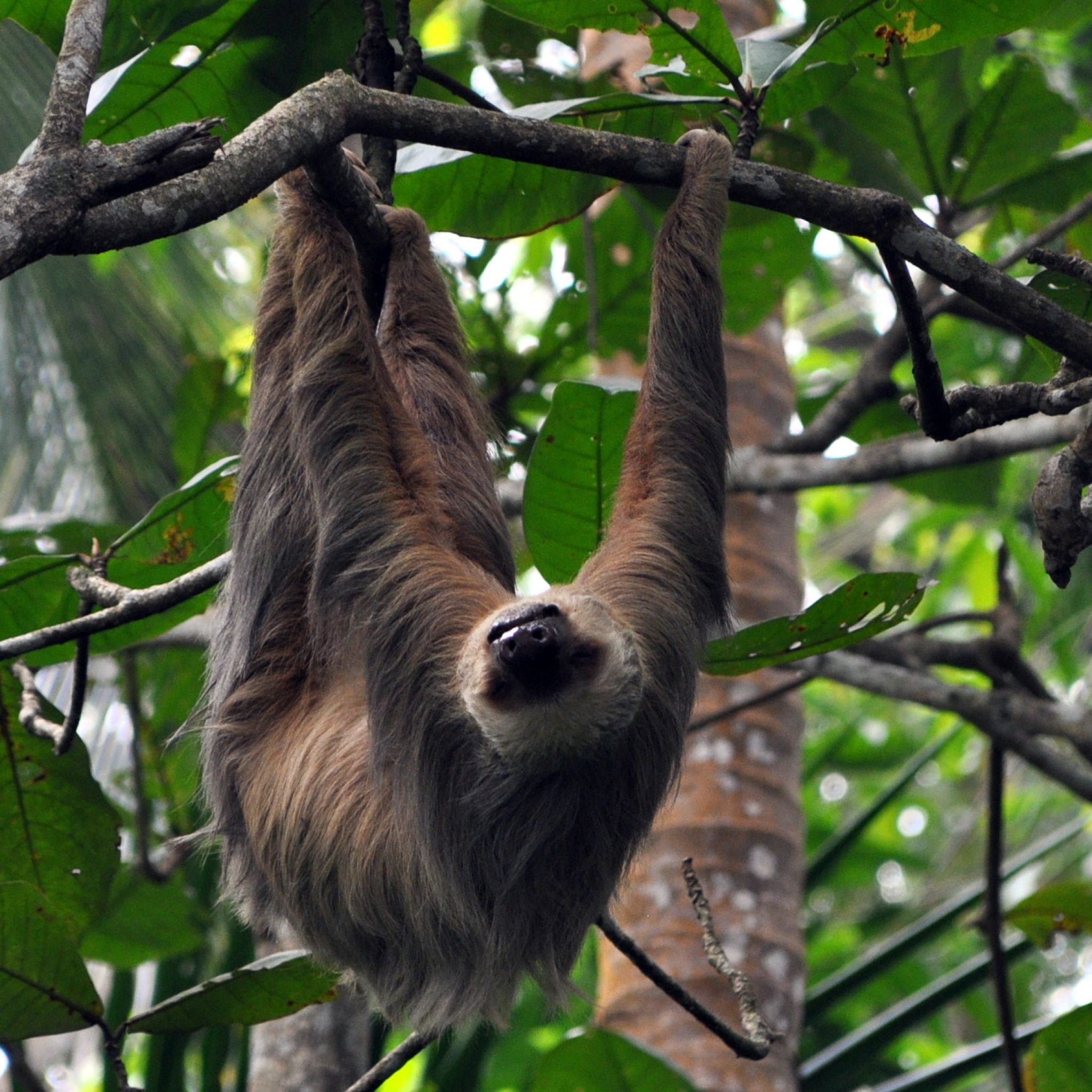
Unfortunately, as Costa Rica grows in popularity so does the greed of some hoteliers who use the ‘eco’ label unscrupulously and rack up the price tag without necessarily concerning themselves with the environment. While many Costa Rican ecolodges are a true role model of green hospitality, are some of them merely greenwashing (investing more effort into claiming to be ‘green’ than actually implementing the right practices), and taking advantage of the growing green travel movement?
Some hoteliers use the ‘eco’ label unscrupulously and rack up the price tag without concerning themselves with the environment.
And what’s an ‘ecolodge’ in the first place? Think of it as a type of lodging designed to have the least possible impact on the natural environment in which it is situated. It’s usually distinguished from other eco-friendly hotels by the way it is either constructed or operated, or both. It usually goes hand in hand with the concept of ecotourism as it’s typically based in more remote areas and offers the guests an immersion in nature. Think waking up in a treehouse deep within a tropical rainforest or a rustic cabin in the shadow of a volcano, or falling asleep to the sounds of a waterfall.
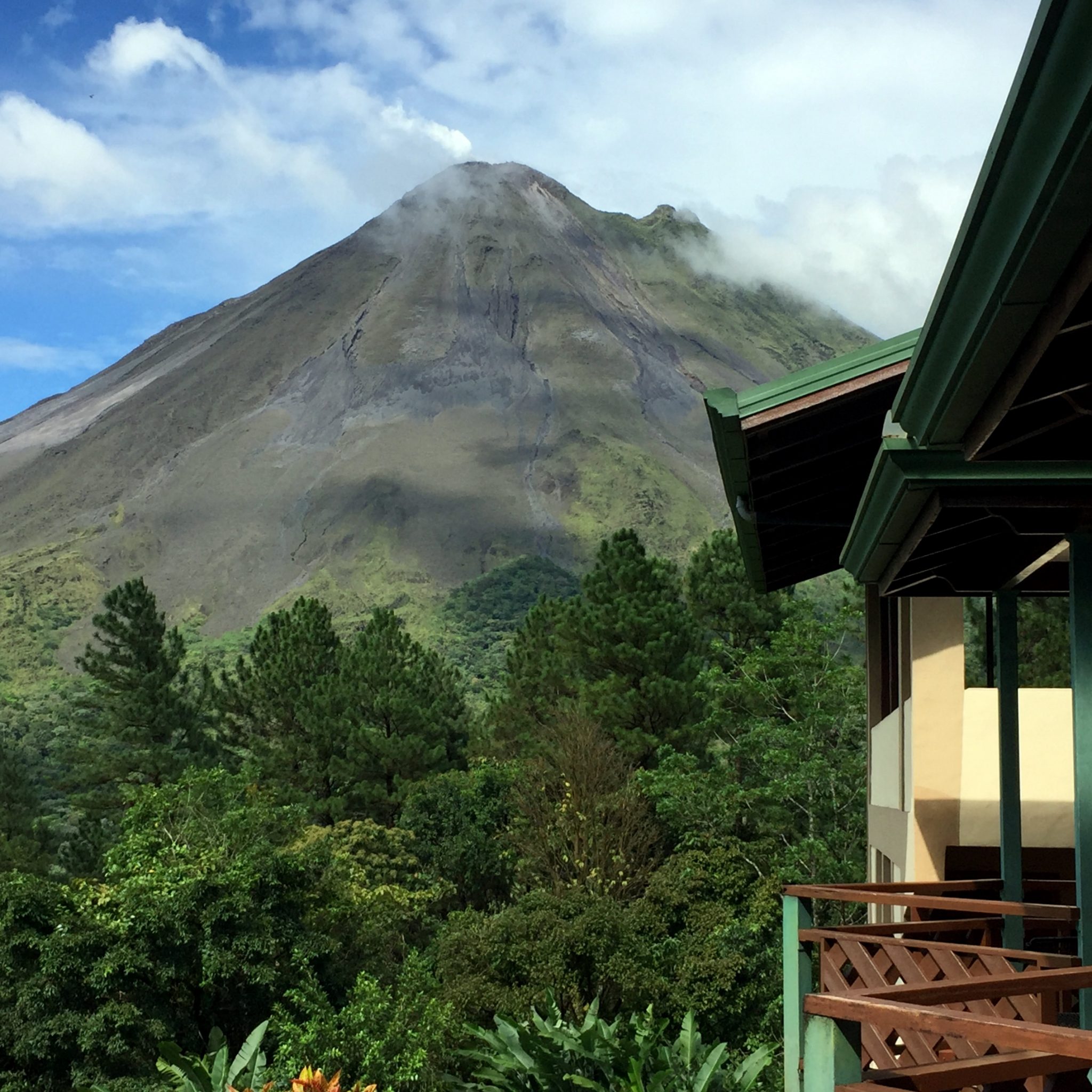
As Mary and Bret from GreenGlobalTravel put it, ecolodges ‘tend to be more active in nature and wildlife conservation, more focused on educating visitors about the flora and fauna of local ecosystems, and more deeply connected with the area’s indigenous culture, whose influence is often incorporated into the lodge’s decor and restaurant menu.’
Ideally, a fair share of the profits sticks in the local host community and the environmental impact of the hotel operations is minimal. The notion of ecotourism is reinforced by ecolodges as a more sustainable long-term business model rather than altering or destroying habitats for quick financial gains. Or is it?
A tropical vacation paradise, Costa Rica offers some of the most bio-diverse landscapes in the world. The combination of the collaborative nature of the locals, the ‘Pura Vida’ lifestyle, and the conservation efforts of the government have provided the perfect ground for the development the Certification for Sustainability in Tourism (CST) by the Costa Rica Chamber of Tourism (ICT). Hotels (and lately also tour operators and restaurants) have been able to obtain this certification, and score between one and five ‘eco stars’, for demonstrating their sustainable business practices.

While this is a very noble initiative at its core, and it’s helpful to have a set of standards as reference, skepticism and doubt is inevitable when large multinational chain all-inclusive resorts on the list of certified properties (which sometimes do as little as draft a CSR paper and offer an option to reuse our towels) sit right next to small family run lodgings which genuinely and harmlessly blend in with the surrounding ecosystem and offer the ultimate eco experience.
One foreign owned resort, awarded three ‘eco stars’ by the CST (and boasting no fewer than 13 other ‘awards’ and ‘certifications’), has issued several press releases over the years about the chain’s green policies, its water and energy-saving programs, measures to avoid wasting of paper and other resources, and more. What the awards do not tell us is that to develop the hotel entire sections of forest were removed, a creek diverted, and a section of mangrove buried under dirt and ornamental grass.
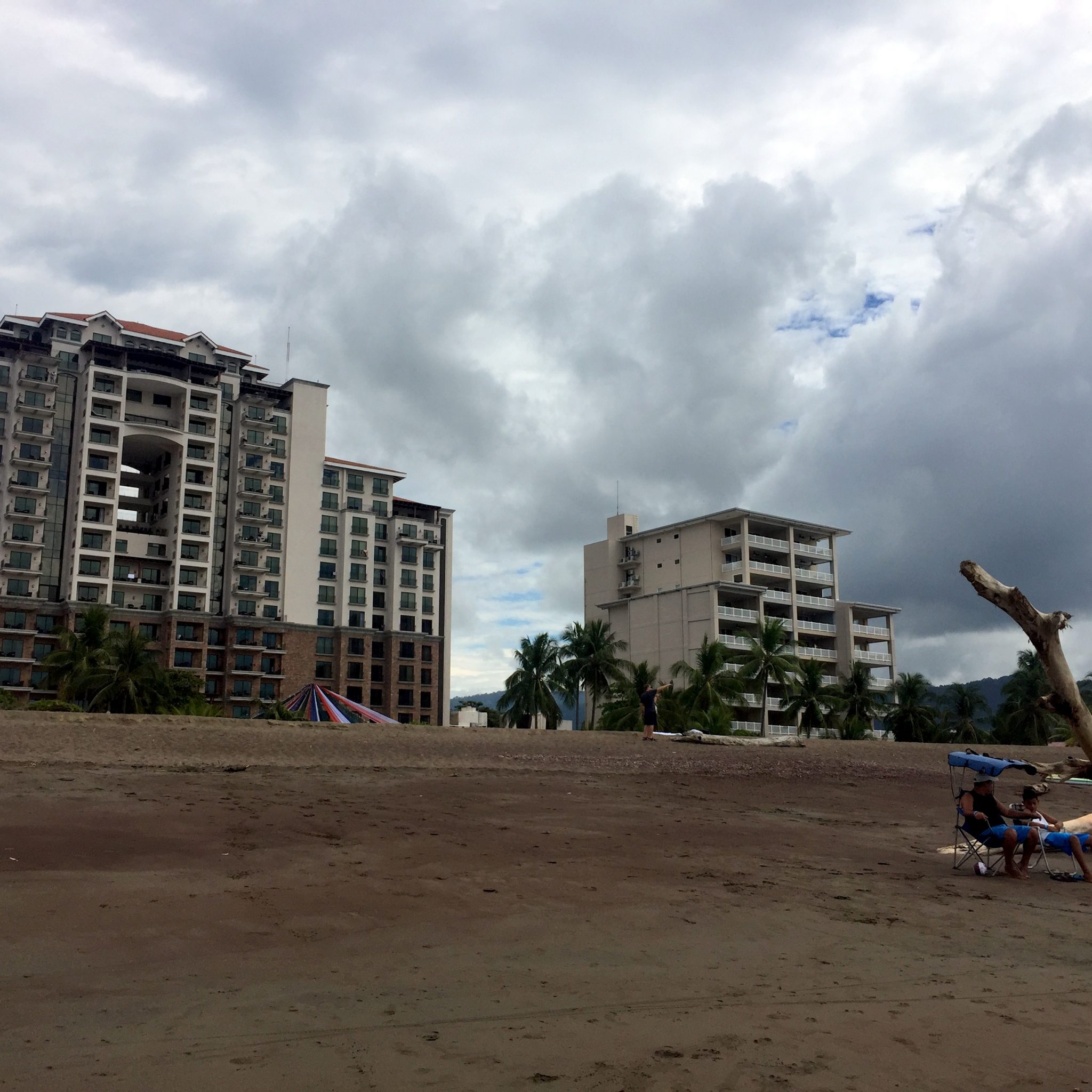
Another listed international chain resort’s website offers “casual luxury and unsurpassed service to this pristine jungle setting,” when it is actually situated on dry former cattle grazing land, and has a golf course that inevitably uses large quantities of water. Moreover, this being an all-inclusive resort means it will bring only modest revenue to the local economy, with vacationers paying for their packages overseas and not needing to venture into Costa Rica since everything is available at the resort.
Perhaps we should take all certifications and accreditations with a pinch of skepticism these days.
The founder of CREST Centre for Responsible Travel Martha Honey points out that some smaller ecolodges, too, have been found guilty of greenwashing. While billed as environmentally-friendly for its recycling, composting, and nature walks, one Caribbean-coast based ecolodge was built within the Gandoca-Manzanillo Wildlife Refuge, where development was restricted, and the Kekoldi Indian Reserve, where construction must be approved by the Indian association, and it was not. The Kekoldi Association was understandably upset that the foreign owners supported conservation elsewhere in the world, and in Costa Rica they were clearly doing the opposite.
Turns out all that eco glitter is not entirely green… Perhaps we should take all certifications and accreditations with a pinch of skepticism these days and always aim to validate them with additional questions, proactive research, and reasoning.
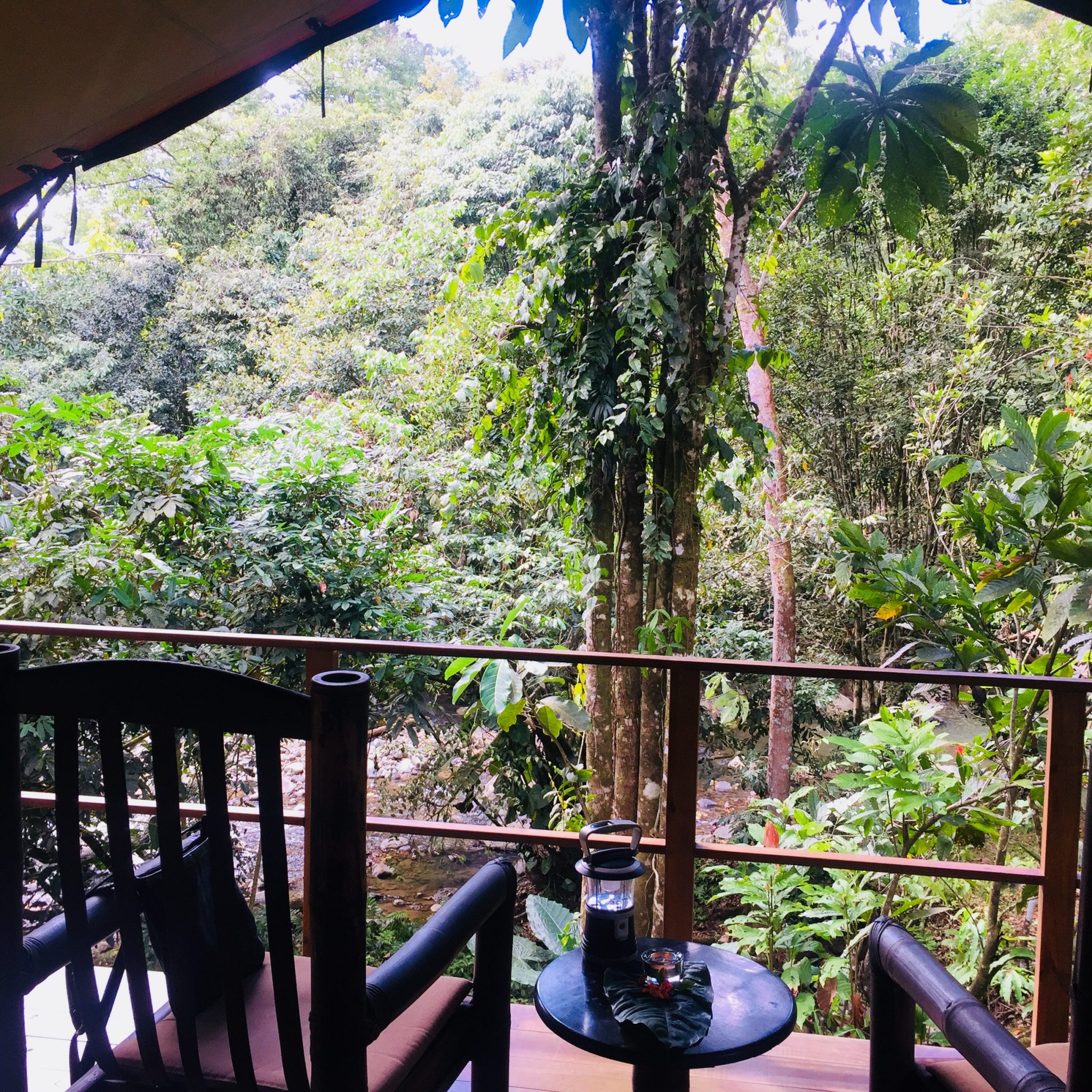
On the plus side, the ICT list does feature exemplary ecolodges such as La Leona in Osa Peninsula – a small hotel surrounded by pristine nature, involved in conservation, recycling and the preservation of natural resources. All activities at La Leona Eco Lodge in the nearby Corcovado National Park consider the environment at its core. It is the perfect place for nature lovers and adventure seekers as their sustainable practices and environmentally responsible operation has kept the forest untouched for guests to enjoy a nature immersive experience like no other. The comfortable tent-cabins are designed to let you wake up to fresh ocean breeze, feel the music of the Costa Rican rainforest and experience some of the most amazing Costa Rican sunsets.
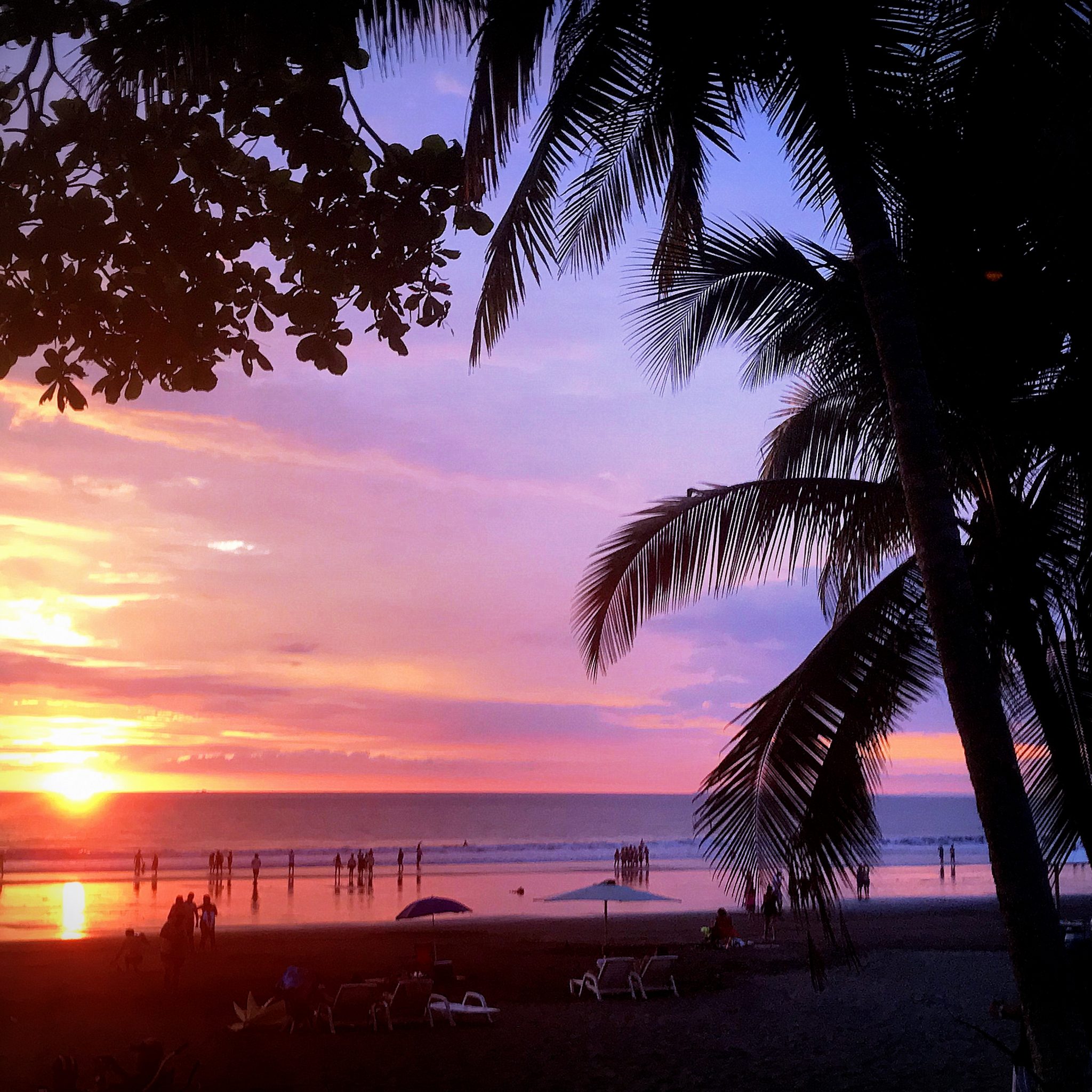
The belief that social and environmental advocacy are key to providing a high quality experience for their guests is also shared by the owners of the amazing family-run Finca Rosa Blanca, set amidst the cloud forest north of San Jose. Teri and Glenn encourage and support environmental consciousness and proactive sustainable practices, such as guided tours through rain forest reserves with a specialized naturalist.
The Finca happens to be the highest ranking member of the CST program (scoring an exemplary 107% with bonus points for extra projects) and was the first hotel on the list to achieve a perfect score of 100. The property boasts solar panels, low-flow toilets and even its own organic coffee plantation. The hotel provides meaningful support to the local community, e.g. income, education, positive cultural exchanges and financial incentive to protect the natural environment, all while offering a luxury hotel experience in a stunning location.
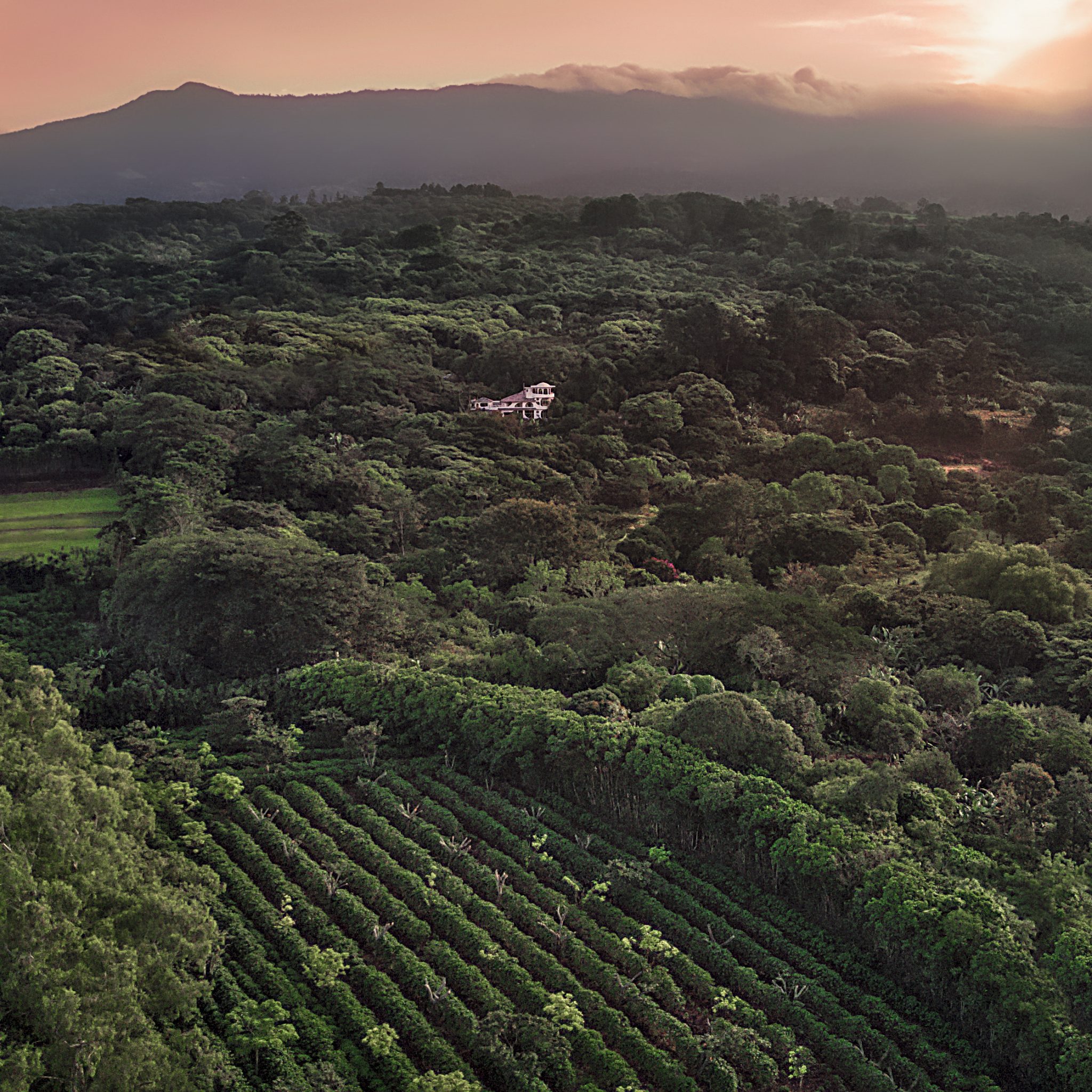
Bungalows illuminated with lanterns and candles and what little electricity used at the lodge is clean energy generated by a turbine in a nearby stream? Organic food as a norm rather than exception? Even as part of your rafting tour packed lunch? School supplies donated to three nearest primary schools? All staff recruited from nearby communities? Welcome to Pacuare Lodge – one of the National Geographic collection of world’s best ecolodges (so is Rosa Blanca, by the way).
The Lodge was built with minimal impact on the surrounding forest and river. No trees were cut to accommodate the bungalows and main lodge, the buildings use lumber from a reforestation project run by small farmers. The thatch roofs were made by local Cabécar Indians in their traditional style using palm leaves collected in our forest reserve. Did we mention their bathrooms are equipped with biodegradable soap and shampoo, the water for their showers is solar heated, and all the lodge’s wastewater flows into state-of-the-art septic systems to avoid pollution of the nearby river? A living and breathing definition of a true ecolodge, if there ever was one.
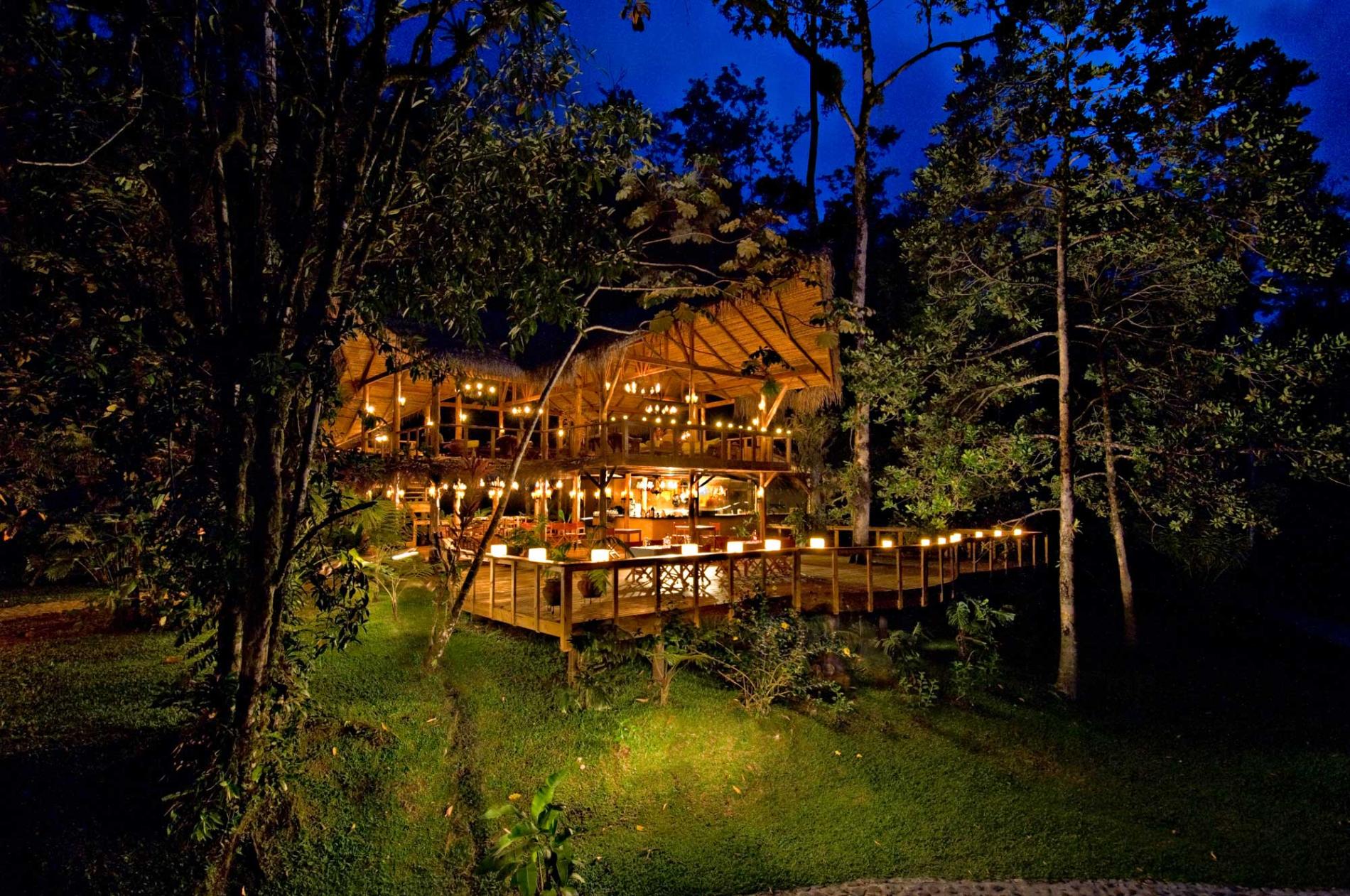
And then there are some underrated businesses that are not part of the CST (or any other green scheme) at all, yet humbly and quietly tick all the ‘eco’ boxes.
At Rio Tico Safari Lodge near the iconic Marino Ballena National Park, sustainability efforts include disposing waste at a nearby recycling center which donates their income to a local school, minimizing the use of water and electricity throughout the property, using biodegradable detergents and guest toiletries, and installing a special septic system that purifies the effluents before returning them to nature.
There are businesses that are not part of any green scheme, yet humbly and quietly tick all the ‘eco’ boxes.
To support the community of nearby Punta Mala, they recommend guests to have lunch or dinner in one of the locally owned restaurants in the village, or take a special kayak tour through the mangroves with one of the locals – captain Jaime. After the tour Jaime invites you to have a cup of delicious Costa Rican coffee at his house. A truly immersive cultural exchange! They also donated construction materials for a new dining room and bathrooms at a primary school in Punta Mala as well as encourage guests to get involved with the local environmental non-profit Corcovado Foundation. They truly take responsibility not only for your holiday experience, but also for the local community and ecosystem.

Up the coast from Rio Tico lies Tipi Jungla Ecolodge where you can get a once in a lifetime opportunity to share the jungle with sloths, monkeys, anteaters, armadillos and other rainforest inhabitants as they peek into your very own – yes – teepee. A childhood dream come true. The design and construction of the accommodations here are inspired by the native tribes of Central and North America. A Dakota Teepee, an original Indian-residence, provides you an extraordinary place to stay. The Palenque, a Boruca Indian hut, offers you the opportunity to take an afternoon nap in a hammock. You can experience a combination of different types of cultural immersions, complemented with an eco-vision you won’t easily find anywhere else. Add a stunning ocean view and beautiful natural surroundings and your stay in the jungle will be one to remember.
If that wasn’t encouraging enough, your stay at Tipi Jungla Ecolodge allows you to experience the tropical rainforest in a sustainable way and, at the same time, contribute to its preservation: Tipi Jungla donates a percentage of its profit to the school children of the southern Costa Rican Guaymí Indigenous Reserve in Coto Brus. Oh, and the night rates start at $33 per person!
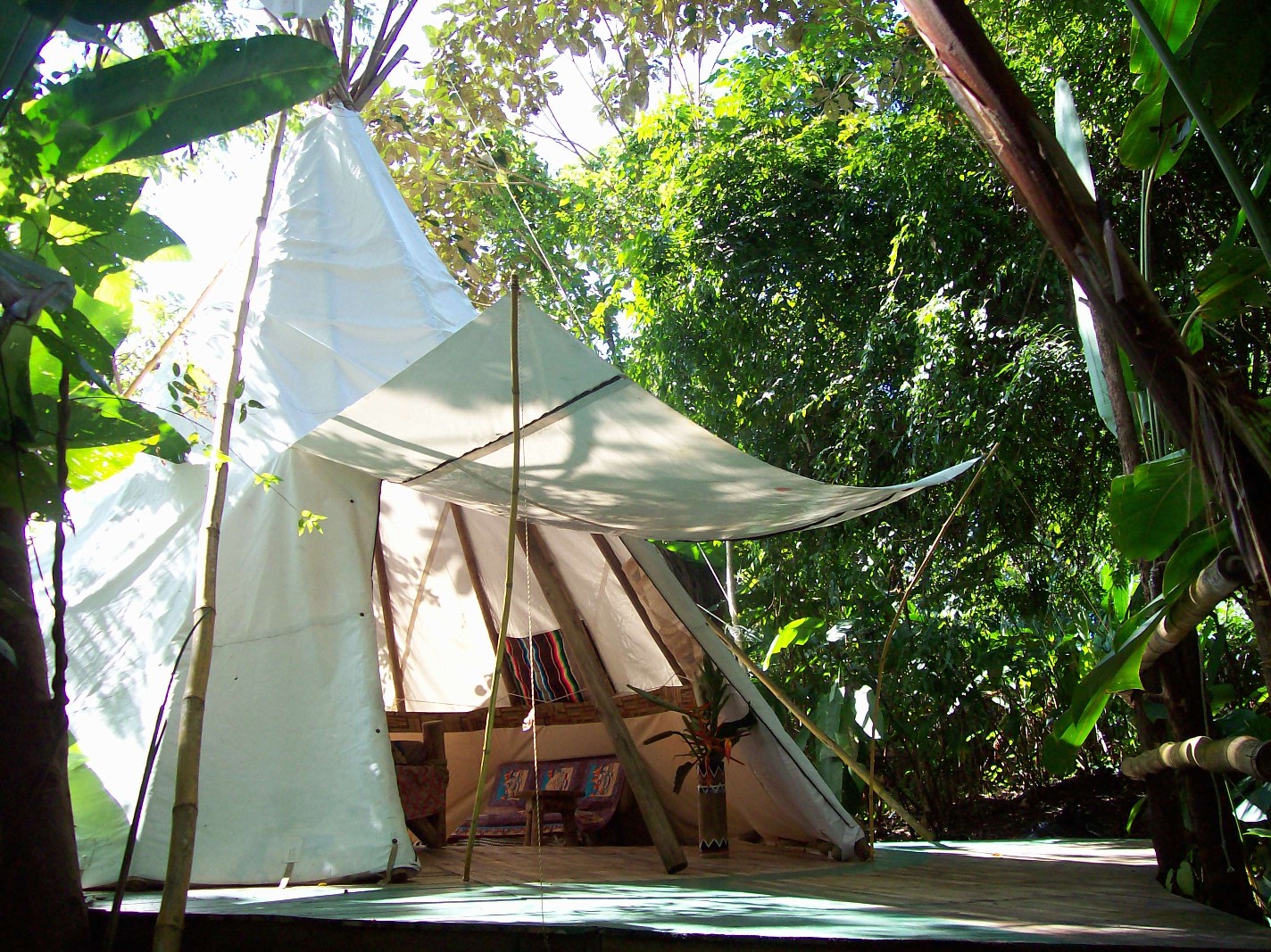
With so many options for every travel style and budget in Cost Rica, why not consider lodging that is eco-friendly – relax, explore and indulge guilt-free knowing that your very presence is contributing to the preservation of the environment and local community. Not to mention that instead of staying at a typical chain hotel or impersonal resort, an ecolodge can help you feel more connected to this wildlife-filled Central American paradise.
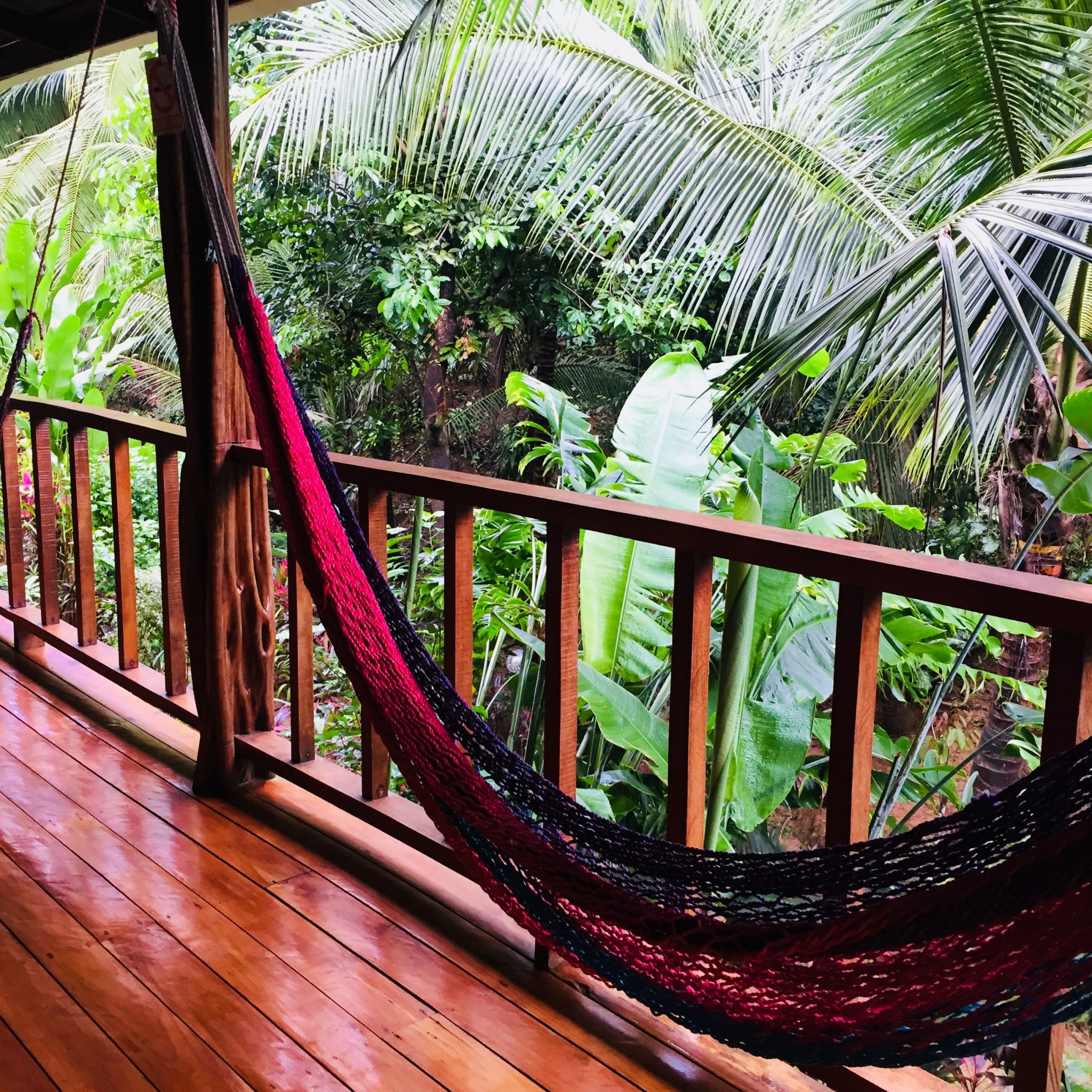
There is no question that greenwashing is a problem, and you do have to look at any business with a dose of scrutiny and a critical eye, trust your common sense and ask the right questions: before you book, during your stay, and after you return home – reviews and online opinions are the lifeline of any hotel today!
What is the hotel doing to contribute to the environment and local economy? How do they communicate their commitments/plans/progress/results? Are they welcoming guests with single use plastic bottles of water or a glass of water from a refillable filter? Do they encourage you to use bicycles/local transport/your own two feet? Are the toiletries in refillable dispensers or wasteful small plastic containers? Is the AC unnecessarily overused? Is the place locally owned and staffed? Is the waste (guests’ AND hotel’s) actually recycled or are the bins just for show?

At a genuinely green business you should be able to ask anyone, from receptionist to management, about the company’s take on sustainability and their specific practices. The staff at any hotel truly dedicated to sustainability at its core should be knowledgeable about it.
The bottom line is that business owners will always try to meet the demand by consumers, and respond to the trends. Therefore, as travelers, we need to become more educated and savvy about our choices, and affect change by creating the right kind of demand, and the right kind of trends.
Can the solution to greenwashing really be that simple? It’s certainly worth a try.
Photography: Gabriela Sijer, Finca Rosa Blanca, Pacuare Lodge
[tp_hotels_selections_discount_shortcodes city=”124″ title=”Find Hotel Deals in Costa Rica” paginate=true off_title=false type_selections=”popularity” number_results=”20″ subid=”” city_label=”Costa Rica” type_selections_label=”Popularity” link_without_dates=false]

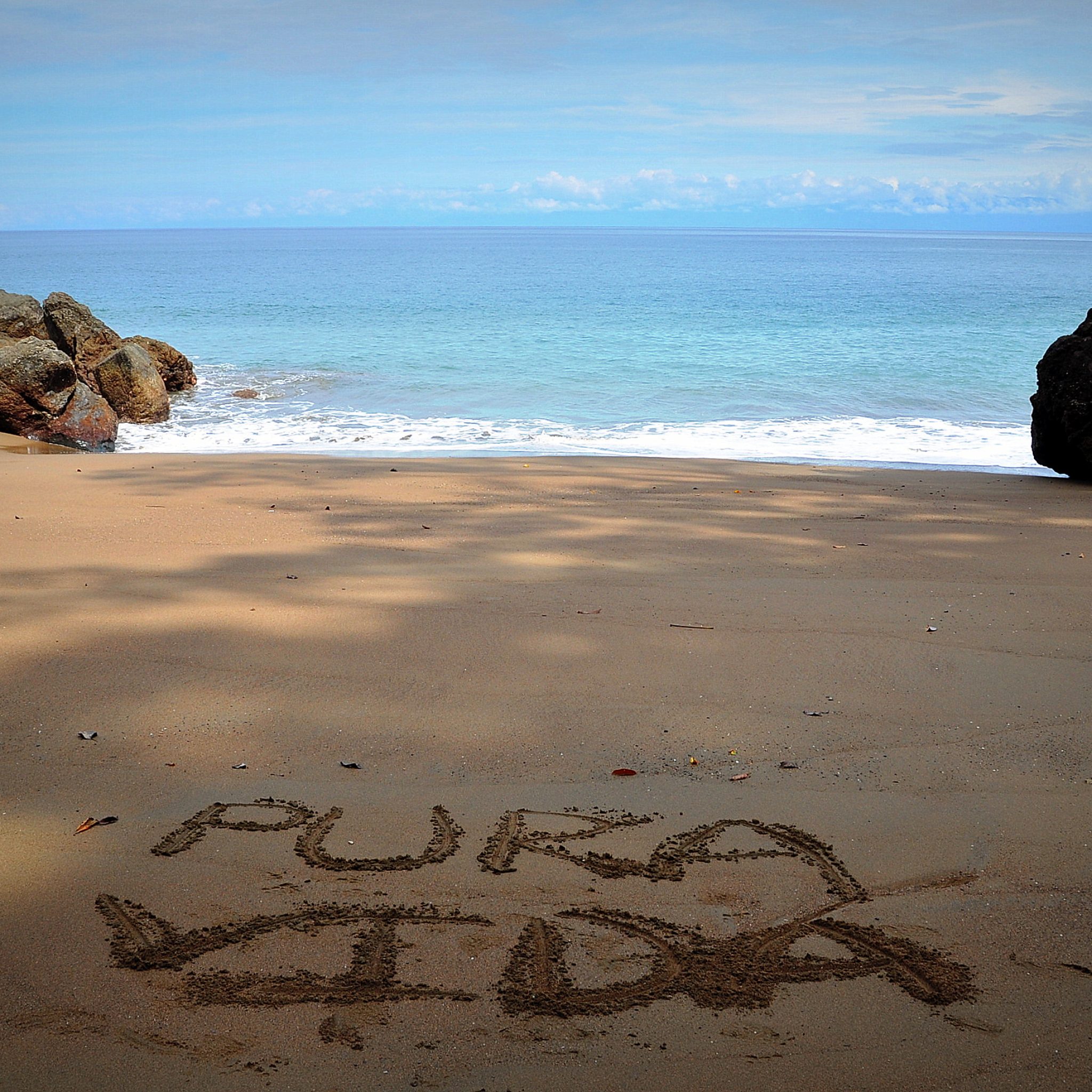




Comment (0)